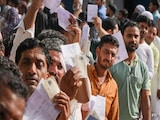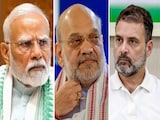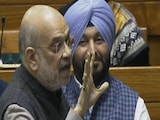Canadian Foreign Minister Anita Anand's recent visit to New Delhi marked the most definitive step yet in the cautious and pragmatic "reset" of the deeply strained Canada-India relationship. Following a turbulent two-year period triggered by former Prime Minister Justin Trudeau's allegations regarding the killing of a Sikh separatist on Canadian soil, the visit signalled a mutual commitment to prioritising shared economic and strategic interests over past political friction.
The core outcome of the trip was the agreement on a "New Roadmap for India-Canada Relations", establishing a step-by-step approach to restore and invigorate institutional cooperation across key sectors, demonstrating a mutual willingness to move forward from the diplomatic low point of 2023. The three-day visit, which included high-level meetings with Prime Minister Narendra Modi, External Affairs Minister S Jaishankar, and Commerce Minister Piyush Goyal, centred on revitalising dormant mechanisms and injecting positive momentum.
A Clear Pivot From Trudeau Days
Politically, the Anand visit itself was the primary highlight, as the first high-level ministerial engagement since the 2023 crisis. It follows the earlier reinstatement of High Commissioners and National Security Advisor-level dialogues, confirming the restoration of basic diplomatic functionality. The agreement on a "New Roadmap" - a structured framework focused on restoring and strengthening political, economic, and technological cooperation - is a clear pivot toward pragmatic diplomacy, avoiding sweeping declarations in favour of tangible work plans.
A slew of key dialogues have been reactivated. Crucial mechanisms slated for immediate revival include a commitment to hold ministerial-level talks soon on trade and investment; a Canada-India Ministerial Energy Dialogue (CIMED), relaunched with a focus on clean energy, LNG, and critical minerals; and a joint Science and Technology Cooperation Committee, which should give a fillip to technology collaboration, especially in emerging areas. Minister Anand's travel to Mumbai to meet with investors and business leaders also underscored the importance of the vibrant Canadian-Indian diaspora to which she belongs, which remains a bedrock of the bilateral relationship.
Trade Talk
The economic and technological sphere emerged as the lowest-hanging fruit and the most active area for renewed cooperation, driven by a mutual need to de-risk supply chains and diversify trade away from reliance on the US and China. While formal Comprehensive Economic Partnership Agreement (CEPA) negotiations remain paused, the focus is on boosting current trade and investment grounded in principles of mutual respect and trust. India is Canada's seventh-largest goods and services trading partner, and the economic potential is immense. The discussions specifically targeted mutually beneficial opportunities in agriculture and agri-value chains, clean technology and renewable energy, and perhaps most interestingly, critical minerals, currently a Chinese near-monopoly. This could align Canada's resource wealth with India's industrial needs.
The relaunch of the CIMED signals a strategic alignment on climate goals. Canada, with its clean energy expertise and resources, is positioning itself as a key partner for India's ambitious decarbonisation and renewable energy expansion plans. The agreement to relaunch the Joint Science and Technology Cooperation Committee points to a shared future in high-tech fields. Emphasis was placed on research partnerships in emerging technologies such as Artificial Intelligence (AI), cybersecurity, and fintech. The possibility of a Canadian Prime Ministerial visit to the AI Summit in New Delhi next year was also discussed, suggesting high-level interest in this sector. Both sides agreed to strengthen cooperation in education, with plans to expand Canadian academic presence in India through overseas campuses and revitalise the Joint Working Group on Higher Education - all of which had suffered during the recent downturn in our relations.
The Elephant In The Room
The challenging area remains that of national security, which lay at the heart of the problems that had bedevilled the India-Canada relationship. One learns that the security dialogue, though highly sensitive, saw significant and crucial progress toward establishing a framework for cooperation, reflecting a determination to manage, and perhaps eventually resolve, the core areas of dispute. The joint statement explicitly mentioned moving toward establishing a framework for strategic cooperation on security. This is critical as it provides a diplomatic channel to discuss complex and sensitive issues. Let us not forget that the Foreign Minister's visit was directly preceded by a meeting between the National Security Advisors of both countries, which laid the foundation for advancing cooperation in counter-terrorism, combating transnational organised crime, and intelligence exchanges.
Minister Anand confirmed that Canada would maintain its law enforcement and security dialogue with India. This is a balancing act, allowing Canada to continue its legal investigation into the Nijjar case while simultaneously addressing India's core security concerns about extremist elements operating on Canadian soil. The prospect is not one of deep, immediate intelligence sharing, but of establishing a stable, respectful channel where security concerns can be addressed away from the glare of media publicity, based on the "mutual respect for shared democratic values, the rule of law, and a commitment to upholding the principles of sovereignty and territorial integrity".
Critically, both sides have agreed to progressively deploy necessary expertise in their respective Missions for advancing the shared ambitious agenda. For public representatives like myself, frequently assailed by requests from constituents facing impossible delays and hurdles in obtaining Canadian visas, the hope is that the Canadians will strengthen the numbers of their visa-processing staff, which will go a long way towards facilitating people-to-people exchanges and student arrivals.
Inherited Challenges
Despite the positive reset, the relationship remains constrained by deep-seated political and structural challenges that will unavoidably limit the pace of progress. The unresolved core issue of the 2023 allegations around Nijjar, the fugitive Khalistani militant who was murdered in Canada, remains an inherent limitation. While the undiplomatic surround-sound has decreased, the ongoing legal investigation in Canada (with four Indian nationals facing charges) ensures that the matter of alleged foreign interference and what North Americans call "transnational repression" will continue to affect public and political discourse. For India, the free rein given to pro-Khalistan elements in Canada, and the permissive environment for the issuance of threats and worse by them against India, remains a significant security concern as well as a diplomatic irritant.
The earlier breakdown created a massive trust deficit at the government-to-government level. The new roadmap is explicitly a "step-by-step approach" where progress in one area (like diplomatic staffing) is seen as a prerequisite for advancing to the next (like trade missions or CEPA talks). This incrementalism inherently slows down the realisation of the full economic and security potential and needs to be overcome. But Canada's holier-than-thou refusal to issue visas to even retired Indian army or police personnel who have served in Kashmir, Punjab and the North-East (implicitly accusing them of complicity in human rights violations) understandably sticks in Indian craws. There are well-known, widely-reported cases of individual Canadian peacekeepers on UN duty having been involved in human rights abuses, sexual assault, torture and even murder; does that entitle India to refuse visas to any former Canadian military personnel on the grounds that they are all tainted by association?
Roadblocks Remain
It is also noteworthy that the Comprehensive Economic Partnership Agreement (CEPA) negotiations are not officially back on the table. Canada has historically cited India's obstructive positions in the World Trade Organization (WTO), particularly concerning agriculture, as a major issue. Furthermore, there is domestic pressure in Canada from diaspora groups, mainly the Khalistanis, who are sceptical of prioritising trade over security and human rights concerns. This is an issue that requires further work by the newly-restored High Commissioners in both countries to overcome.
While both nations share an interest in the Indo-Pacific, their geopolitical priorities diverge slightly. Canada views the relationship primarily through the lens of economic diversification and its Indo-Pacific strategy, while India sees it in the context of broader global stability and strategic autonomy, with a keen focus on internal security amid threats from China. This story has great potential, but is still unfinished.
To summarise: the visit successfully turned the page from the lowest point of crisis to a new chapter of "pragmatism and positivity". However, the speed and depth of future cooperation will be determined by the political will to manage the sensitive security file quietly, allowing the significant economic and people-to-people connections to finally drive the relationship. We can only hope that the visiting Minister's name ("Anand" means "bliss", after all) portends a happier phase in India-Canada relations.
(Shashi Tharoor has been a Member of Parliament from Thiruvananthapuram, Kerala, since 2009. He is an author and a former diplomat.)
Disclaimer: These are the personal opinions of the author















